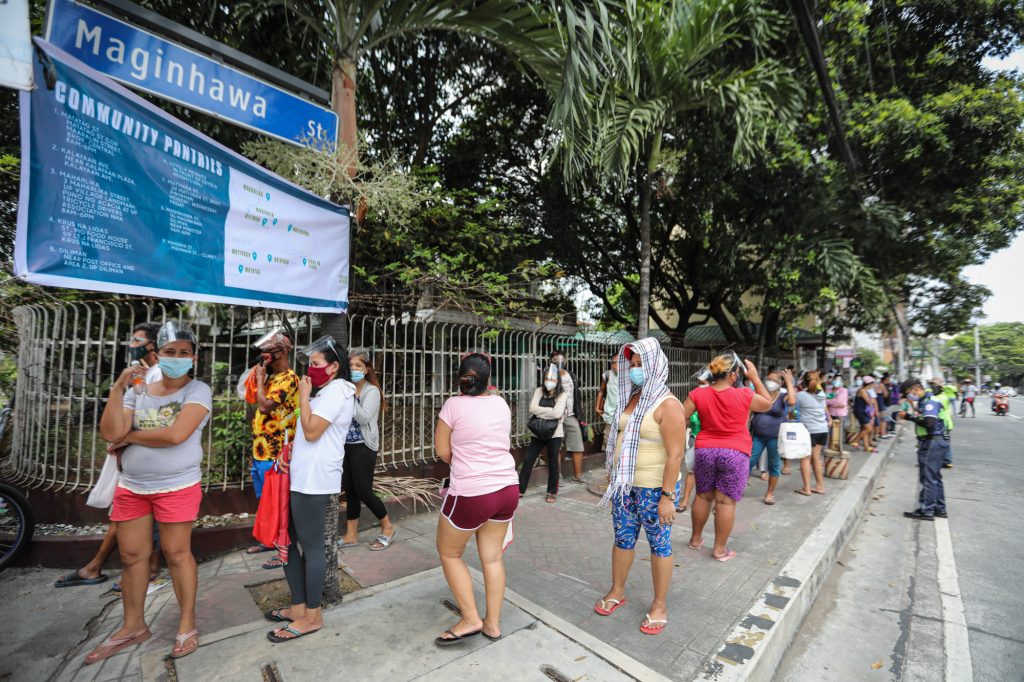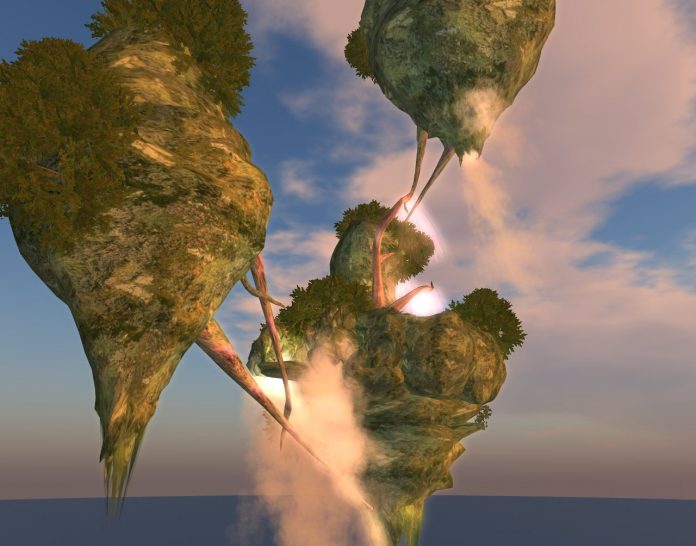Today’s Gospel reminds me of the movie entitled AVATAR, a futuristic science fiction movie. It tells a story about how human beings at some point in the future have totally depleted the earth’s natural resources and have found themselves in a severe energy crisis. To solve the crisis, they resort to mining in the outer space.
Fortunately for the humans, they have discovered a moon named Pandora (Greek for “All-endowed”), which is rich in gas and minerals badly needed by the planet earth to survive. Pandora is inhabited by 10-feet-tall blue-skinned humanoids that live in harmony with nature and worship a deity they called EYWA. (Sounds like Yahweh.)
To explore Pandora, the earth’s scientists invented the avatar, namely a life-form similar to that of the Navis in Pandora but animated by a human consciousness. One of the human avatars falls in love with a native of Pandora and becomes sympathetic with them. He eventually opposes the move of the human RDA (Resources Development Administration) that was planning to bulldoze the Home Tree in Pandora, the giant tree which served as the gathering place of worship of the Navis, which the humans found to be the richest source of mineral deposits.
Through his friendship with the Navis, the sympathetic human avatar discovers the Tree of Souls where the Navis seek refuge. He joins them in praying to Eywa through a neural connection with the tree of souls to intercede for the Navis against his fellow humans who were about to destroy the Home Tree. All the other creatures of Pandora awaken and are mobilized to fight the humans and succeed in expelling them from Pandora and sending them back to their doomed planet earth.
In today’s Gospel, Jesus speaks of the connection between the Father as the Vine Grower, himself as the vine, and his disciples as the branches connected to the vine. It is John’s own version of the organic unity between Christ and his disciples, which is described by St. Paul, using a different analogy: the one body and its many parts. The unity, St. Paul tells us, is assured by the same Spirit that animates the Church, the Body of Christ. If we return to the image of the vine and the branches, the Spirit, as it were is the lifeline, the principle of connection that makes sure the every branch is linked to the life-source so that it remains alive and productive.
This is a perfect metaphor that can make us understand the thoughts of Pope Francis in Laudato Si, which is very much maligned by the transnational companies that are no different from the stupid humans in the movie Avatar, who are bent only on extracting the minerals of Pandora by destroying the Home Tree that keeps everything else alive in that planet. Pope Francis is like the human avatar who tells his fellow humans, “Please, stop this madness. You destroy the Home Tree, you destroy the whole planet Pandora.” Thank God the film is futuristic, meaning, we’re not yet there. There is still time to pause and examine our destructive ways.

Perhaps this pandemic is that opportunity, that much needed pause that God has given us to revert from our destructive ways. It is not yet too late. We have already been in a self-destruct mode. We have not realized that we have been destroying our very lifeline, that by disconnecting ourselves from our source and from each other, we are killing ourselves.
One of the most hopeful signs in the Philippines in the midst of this pandemic has been the multiplication of community pantries all over the country. It is a sign that were are awakening to the madness of individualism, unrestrained capitalism and consumerism, our tendency to be conditioned by a throwaway culture. We are waking up and realizing, it’s never too late to undo what has been done, to reconfigure ourselves, to take responsibility for one another. That apart from each other, we cannot survive. That we really are such fragile creatures, that like the dinosaurs that once existed on planet earth, we too can be easily wiped out by an unseen virus.
Long before the film Avatar was made, Joey Ayala was already singing a song about the organic unity of all things in this world. Remember that song ANG LAHAT NG BAGAY AY MAGKAKAUGNAY-UGNAY?
I translated the song into English and here’s what it is saying:
“All things are connected, yes, all creatures.
We have but one origin and one destination.
Each one is a relative, a tribe mate.
Yes, everything that lives on earth, in the sea, or in the air.
We are riding on the same ship that orbits the open space,
circling around a star that nourishes the trees,
the animals, and ourselves.”
If that sounds pantheistic or primitive to you, listen to what St. Paul says in his letter to the Colossians 1:15-20: “(Christ) is the image of the invisible God, the firstborn of all creation. In him were created all things in heaven and on earth, both visible and the invisible… all things were created through him and for him.”
“He is before all things, and in him all things hold together. He is the head of the body, the church.” (Perhaps we can replace that with John’s analogy in today’s Gospel: “He is the vine and we are the branches.”)
“He is the beginning, the firstborn from the dead, that in all things he himself might be preeminent. For in him all the fullness was pleased to dwell, and through him to reconcile all things for him, making peace by the blood of his cross [through him], whether those on earth or those in heaven.”
Homily of Bishop Pablo Virgilio David of Kalookan for the Fifth Sunday of Easter, May 2, 2021, Jn 15:1-18









